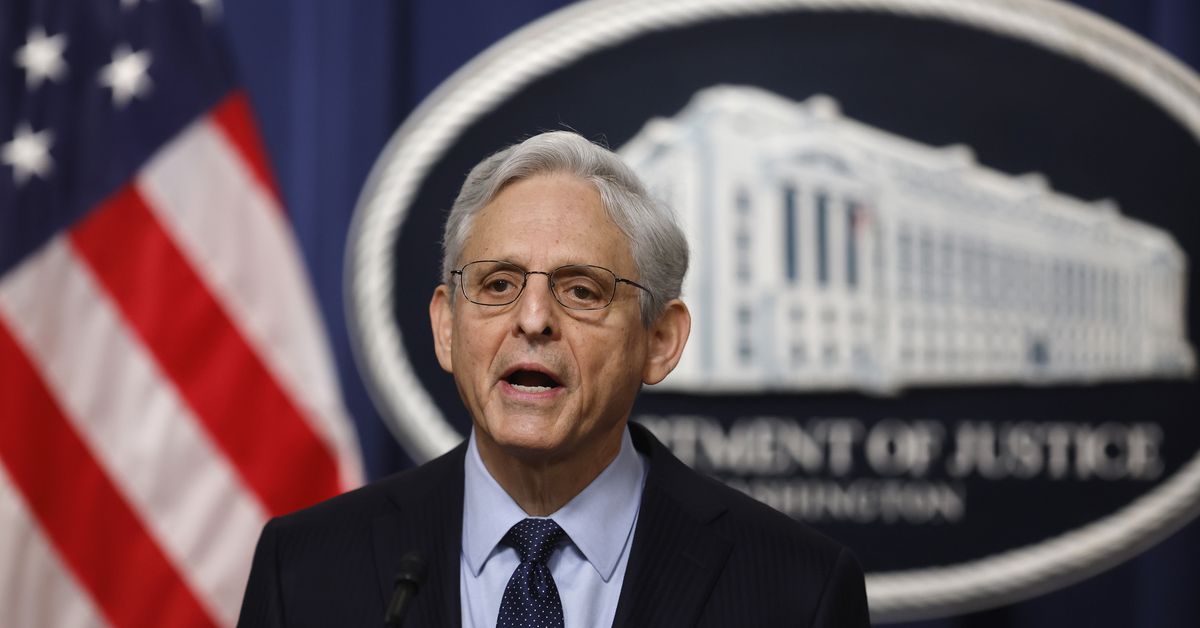
US Attorney General Merrick Garland announced Thursday that he was appointing a special counsel to investigate why classified materials were found at President Joe Biden’s home and a former private office.
Robert Hur, a former US attorney in the Trump administration, will take over the investigation. Biden said he is cooperating. Hur will be tasked with determining whether there were any crimes committed in the course of handling the classified materials, which date back to Biden’s tenure as vice president, and are therefore the property of the federal government under the Presidential Records Act.
It’s not the first time in recent months that Garland has called on a special counsel. He also appointed one to investigate former President Donald Trump’s withholding of classified material found at his Florida residence at Mar-a-Lago.
It’s a role that is designed to act at a distance, but not entirely independently, from the Justice Department to avoid the appearance of impropriety in cases where there might be a conflict of interest. Here’s what you need to know.
When is a special counsel required?
Justice Department regulations require the attorney general to consider appointing a special counsel when a criminal investigation of a person or matter is warranted, and when the DOJ may face a conflict of interest in carrying out such an investigation itself; for example, if the attorney general or another member of the executive branch is under investigation. Special counsels are also required when there are other “extraordinary circumstances” that make it in the public interest to appoint a special counsel, such as a sitting president being under investigation. Garland said Thursday extraordinary circumstances existed in Biden’s case.
It’s not yet clear whether Biden committed any crimes by storing classified documents outside of secure federal facilities; that’s something the special counsel will look into. That Biden is now the president, and that an investigation is underway into former President Donald Trump for mishandling classified documents, makes this a particularly high-profile inquiry. But it’s not unusual for the DOJ to open an investigation in this kind of case.
“Any time classified materials go to a place they’re not supposed to go, there is almost always an inquiry into how they got to that place,” said Kristy Parker, the former deputy chief of the criminal section of the DOJ’s civil rights division and now counsel at Protect Democracy, an organization that seeks to check authoritarian attacks on American democracy. “The department always takes that really seriously.”
Garland was appointed by Biden and, if he were to lead the investigation, that history could present a conflict of interest. That’s likely the primary reason why Garland handed over the investigation to a special counsel. It’s also likely why Garland chose Hur, who was not associated with the Biden administration. (Notably, Garland didn’t appoint a special counsel to investigate the mishandling of classified documents found at Trump’s property until the former president announced his 2024 candidacy, making him Biden’s political opponent and creating a potential conflict of interest.)
“What’s really crucial in a democracy is to have the nation’s primary law enforcement agency operating to the greatest extent possible free of any partisan politics,” Parker said. “So my view is that he is acting appropriately to put someone in charge of this investigation who is not someone who was appointed by Joe Biden or who was already working in the department that the Biden administration oversees.”
What are the powers and limitations of the special counsel?
The special counsel has all the same powers that a US attorney would have to conduct a criminal investigation: for example, subpoenaing witnesses and documents, directing federal agents to conduct investigative activities, and seeking a warrant in court. But there are some limitations to those powers, in that the special counsel is required to consult with the attorney general on major decisions.
“While he’s at arm’s length from the attorney general and he’s not an employee of the current Department of Justice, he still reports to the attorney general. It’s ultimately the attorney general’s final call as to whether a case should be indicted or closed,” Parker said.
Regulations don’t require the recommendations of the special counsel to be made publicly available. But if the attorney general goes against the special counsel’s recommendations, they must report that to Congress after the investigation concludes, and then lawmakers can publicize that decision.
In the case of special counsel Robert Mueller’s investigation into Russian interference in the 2016 election, his findings were made public — but only after then-Attorney General Bill Barr issued his own summary that downplayed the extent of Trump campaign associates’ contacts in Russia and evidence that Trump obstructed justice.
It might not make sense to make the findings publicly available in cases where the DOJ is seeking an indictment, so as not to reveal all of the evidence before taking the case to court. But in cases where the DOJ declines to prosecute, “it’s customary and, in my view, in the public interest, to explain that to the public,” Parker said.
Whether that will happen in Biden’s case is still unclear, as is the timeline for concluding the investigation. But so far, Parker said that the DOJ is functioning as it should.
“I think this is a really important step by the attorney general to do what he said he was going to do when he was appointed, which is to restore the department’s reputation as an independent law enforcement agency,” she said.

